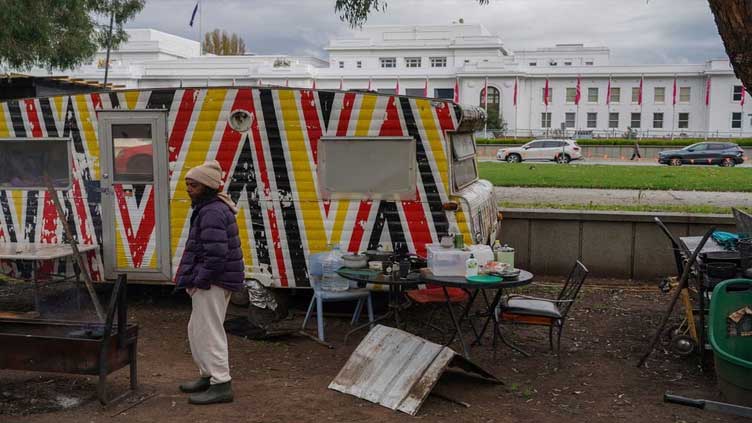Australia opposition to campaign against Indigenous recognition vote

World
Australia opposition to campaign against Indigenous recognition vote
SYDNEY (Reuters) - Australia's main opposition Liberal party said on Wednesday it would campaign against a national vote to enshrine an Indigenous consultative body in the constitution, dashing hopes of bipartisan support on the issue.
Australians will be asked to vote in a referendum later this year on whether they support altering the constitution to include a "Voice to Parliament", a committee that can advise the parliament on matters that affect the lives of its Aboriginal and Torres Strait Island people.
A successful referendum would finally give constitutional recognition to Australia's Indigenous people, who are one of the most incarcerated people in the world.
Opposition leader Peter Dutton said while the party supports recognition of Indigenous people in the constitution, it would not back the referendum because it did not support a constitutionally enshrined consultative body.
"Having a Canberra Voice won't resolve the issues on the ground for Indigenous communities," Dutton told reporters in a televised media briefing.
Dutton said he did not think the Voice would provide practical outcomes for Indigenous people and regional and local committees in their communities could be more effective than a national body.
The rural-based National Party, the junior partner in the opposition coalition, had earlier flagged it would oppose the Voice, while the left-wing Greens party and some independent lawmakers have promised support.
Aboriginal and Torres Strait Islander people, who represent about 3.2% of the country's population of nearly 26 million, are not mentioned in the constitution. They track below national averages on most socio-economic measures and were not granted voting rights until the 1960s.
If the referendum fails it could also damage Australia's global reputation, as comparable nations like New Zealand and Canada have done more to ensure the rights of Indigenous people.
A Newspoll by the Australian newspaper on Wednesday showed 54% of voters would vote "Yes" in the referendum - likely to be held between October and December.
Pat Anderson, an Indigenous woman leading the referendum campaign as part of the Uluru Dialogue, said the focus remained on educating Australians about how the important reform would give First Nations peoples "a say in the policies and laws that impact our everyday lives."
Prime Minister Anthony Albanese said he was still hopeful that the referendum would pass.
"This can still be a moment of national unity, a moment in which our country is enlarged rather than shrunk, which is what we saw today from the Liberal Party," Albanese said.
However, he acknowledged the Liberal opposition would make the referendum more difficult to succeed.
Albanese has staked significant political capital on the referendum. Since Australian independence in 1901, there have been 44 proposals for constitutional change in 19 referendums, and only eight have been approved.

